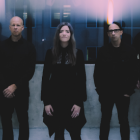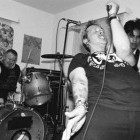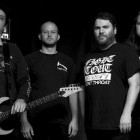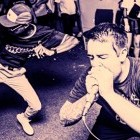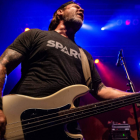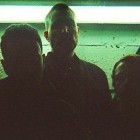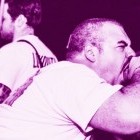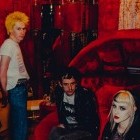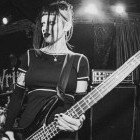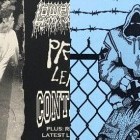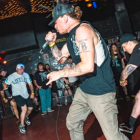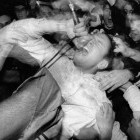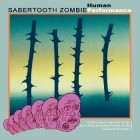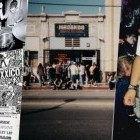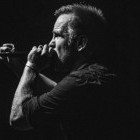The early 1990s shaped my taste for bass players forever. Players like Joe Lally (Fugazi), Les Claypool (Primus), Jonathan Mobley (Falling Forward), Pat McClimans (Endpoint), and Curtis Mead of Split Lip/Chamberlain influenced me to "attempt" to walk around the song, playing the main parts, of course, but also finding other rhythms and melodies.
Their ability to add to the song without walking over the singer, guitar parts, and drummer has never left me, and I hope I carry on their spirit forever. Curtis Mead’s playing on both the Split Lip and Chamberlain recordings have some of the best bass hooks I've ever heard, and will always be with me. I covered Fates Got a Driver anthem "Street Singer" in college, and people loved it way more than my original material!
All kidding aside, those albums were a part of thousands of road trips, and I even broke up a band while listening to Chamberlain's The Moon My Saddle album. We were trying to set a "mood."
Take some time outta your day, and read about one of my favorite bass players.
Introduce yourself to everyone.
Hi everyone, I’m Curtis Mead. I play in a band that just won’t go away called Chamberlain. And since this is a bass specific interview, I have an on-again/off-again project I do with 2 bass players called Model/Actress (members of Brainiac, Bullet LaVolta and a David Yow cameo here and there).
How did you get into playing the bass guitar?
It was actually somewhat circumstance. My (now lifelong) friend Clay played guitar. He and I had been going to punk shows and one day he stole a mic from his hockey rink. Our good friend at the time wanted to sing, so that left me… I got a bass on Christmas morning and we started Split Lip on Christmas day 1989.
I would say you are known for writing for your own hooks over the guitar parts in your songs. Has there been a “typical” way you write all those parts?
I wouldn’t say there’s a “typical” way… I’ve been fortunate enough to play with great songwriters growing up. They did the heavy lifting and I just riffed over and under and between them.
Do you write the parts you stick with at practice, or do you take it home to work on?
A bit of both. These days we are all remote so we do a lot of the rehearsing alone at home before getting in a room together.
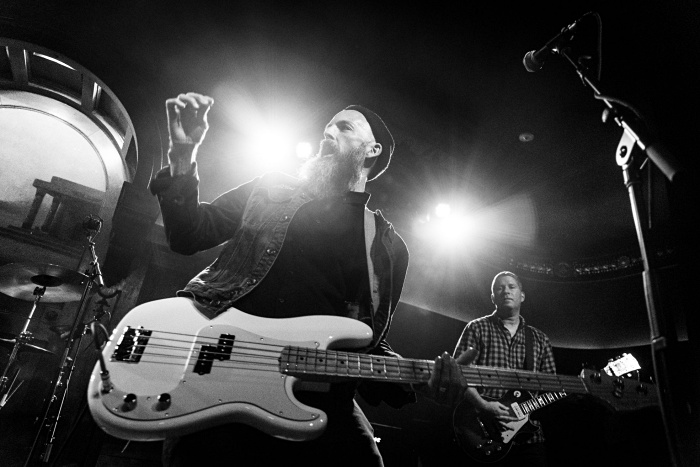
Did, and does your family support your music?
Early on, my mother was our main driver. She would drive the younger guys in the band to cities hours away to play shows. She dropped me off at shady clubs downtown to see Circle Jerks and 7 Seconds etc, at 13 years old. What was she thinking?!
My wife spent many years touring as well. When we started dating we both agreed that constant touring is not something either one of us is interested in doing. I think we’ve found a good work/family/music balance at this point.
Have you always played with a guitar pick?
Up until The Moon My Saddle, yes. And after it as well. On The Moon My Saddle, I was attempting to be a “rock bass player.” Learning how to play to the kick, be more mellow and compete less with the song. These days, I try and feel out what the song needs… finger, pick thumb, whatever works.
Would you say you upstroke more or downstroke more when picking?
Definitely downstroke with as much pick on the string as possible. I like the growl of an angled worn down pick.
Is there a bass player who has inspired your playing style the most?
The first bands that I really paid attention to bass were The Cure, Joy Division, and fIREHOSE. But the first bass playe that made me want to play bass was Jake Smith from a local Indiana 3 piece called Steve Kowlaski’s Army. He was so aggressive and was a showman. But had the major chops to back it up. I watched him bounce his Rickenbacker off the headstock and grind the bark off a tree with his strings, mid song. I was hooked. I stole every move i have from him.
Other huge inspirations: Joe Lally (Fugazi), Jon Cook (Crain), Mike Kennedy (Drive Like Jehu), David Wm. Sims (The Jesus Lizard), and Steve Youth (7 Seconds).
Is there a drummer who has changed the way you play the bass?
I mean, my secret weapon has always been [Chamberlain drummer] Charlie Walker. He and I have grown up together figuring it all out. He’s my rock.
What's your current amp, pedal, bass guitar set up you've been playing out live?
I’ve always been a '70s P-bass and '70s Ampeg SVT guy. Although ever since I started using the Fulltone Bass Drive pedal, I feel comfortable playing with a variety of amps. For the last tour and album, I rehearsed with a Tiny Terror from Orange and I loved it. Might trade it all in for Orange, who knows! Worth mentioning, I recently got a new American Pro P-Bass from Fender paired with a SansAmp Bass Driver DI, and I have never gotten so many compliments from sound guys before. Always nice to make friends with FOH.
Chamberlain just recorded a new record with Louisville's My Morning Jacket guitarist Carl Broemel. He is an amazing musician, and I actually interviewed MMJ's bass player, Tom Blankenship, for this series. How was it working with Carl?
We grew up playing with Carl’s bands and I’ve always dreamed of a day we could collaborate on something. He was integral in getting the vibe right for Red Weather. Without his instincts and mellow zen-like approach, I don’t think we could’ve made this record. It certainly wouldn’t have been as enjoyable of an experience.
Do you play any other instruments?
I play guitar a lot around the house, but bass has always been my primary instrument.
Can you play and sing at the same time?
Depends which song [laughs]. I try to do all the backing vocals they’ll allow me.
One of the first shows I went to in high school was a Split Lip show. I was a massive Endpoint fan, and Split Lip was also releasing records at the same time for Doghouse Records. Those releases were so important for me as a young musician, and I probably owe you royalties for the number of times I bit your style. What was it like for you during those times?
Oh wow, thanks. Well, those early days were something else, and a lot of them I don’t think we can legally talk about.
We owe a lot to Endpoint for taking us in like they did. They were our big brothers there for a long time. I was just talking about how great it was to be able to pack up on a weekend (because we were still in high school) and do a quick 3-city tour between, Louisville, Dayton, and St. Louis. The people we met along the way definitely made me who I am today. What a crazy time. Especially Louisville. Ya’ll are nuts.
I don't want to bother you with why you guys changed the name from Spilt Lip to Chamberlain, but I have to ask you how you felt being out of the band for those years. As much as I will always love your band, that short term split broke my heart.
I assume you mean towards the end of the original run of Chamberlain. At the time, I was crushed that we couldn’t figure out a way to make it all work. But, it really did all boil down to the really boring answer of “artistic differences.” I definitely wasn’t shy about sharing my opinion of where I thought we needed to be. And at that point, it just wasn’t where Adam and David wanted to be. It’s all water under burning bridges now and all for the best really.
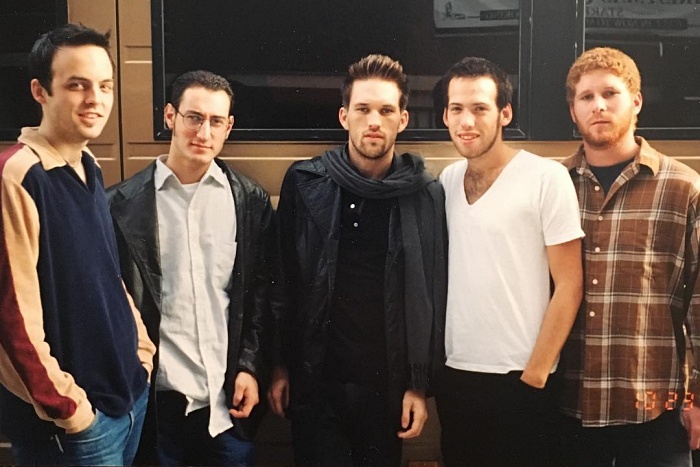
Is there anything else new musically you can tell us all about?
We’ve been in the studio recording and now mixing our first full length in (cough cough) 20 year and we went about it completely different than any other record we’ve done. We didn’t have a lot of time together so we practiced on our own a lot and then trusted our instincts once we got in the studio.
It’s not lost on me that and old band writing new music isn’t for every fan out there. I’m right there with you a lot of the time. But this one was for us. It was great to get back in the room with these guys after so much time. Hopefully, you’ll enjoy what we came up with.
Is there anything going on in your personal life you want to talk about?
I’m a very blessed man. I have an amazing wife and 2 crazy kids, a great company that my partner and I have been doing for years now. A great circle of friends and now working on this band again is just the right balance for me.
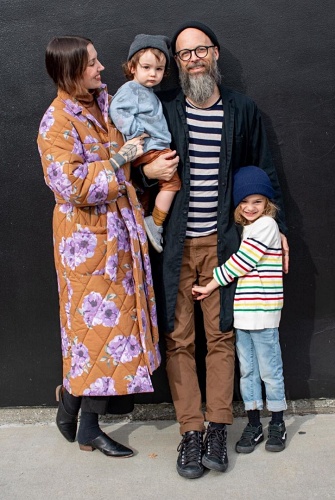
I was the door guy at Lit Lounge in NYC from 2007 to 2011, and you and Chuck would come in every now and then late at night. When the worlds collided on those nights I would lose my mind, and my poor bosses were bummed, cause they knew I wasn't gonna be able to work the rest of the night. Do you have any crazy NYC, Lit Lounge stories?
Oh boy. Can I plead the fifth here? [Laughs] I recall a few of those nights, it’s foggy, but I recall. I think the last time we came through was with Chris Rage after the after-party after our show at Bowery. That night never ended.. and ultimately was the reason I didn’t make it the next morning to see Jawbox play on Jimmy Fallon's show. I still regret that last after-party.
Finally, do you have any words of wisdom for someone picking up the bass guitar for the first time?
Playing music has taken me to places I would’ve never been otherwise and introduced me to so many amazing people. Don’t overthink it, surround yourself with good people, and hit the road. You’ll eventually learn how to play.
Chamberlain on social media: Facebook | Instagram
***
Donate a few bucks to help with No Echo's operating costs:
***
Tagged: 90s hardcore week, bassist spotlight, chamberlain, split lip

